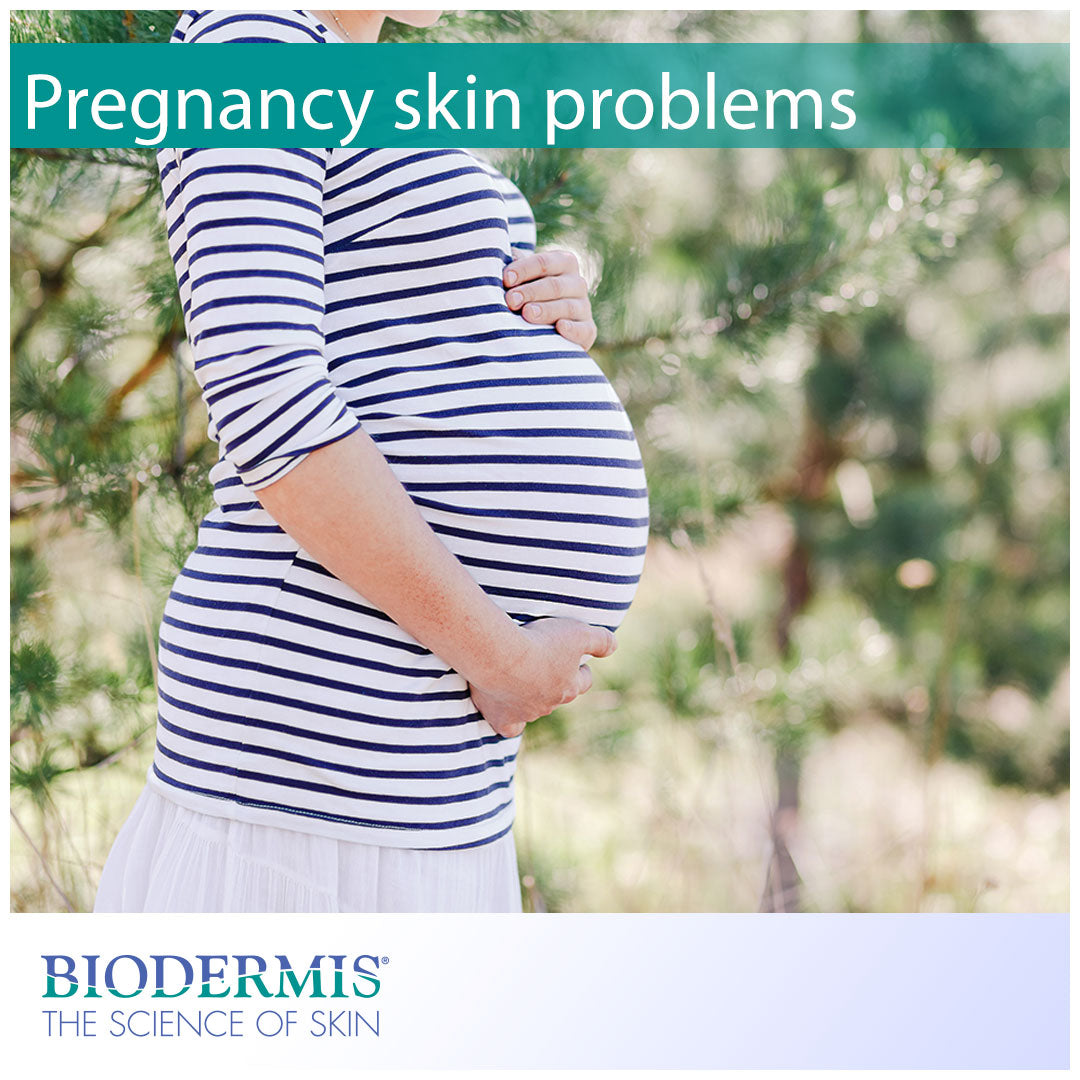Pregnancy is a time during which a woman will experience a lot of emotional and physical changes in her body. This is primarily due to the huge influx of hormones that are made by the body to support the developing baby. While this is good for the baby, some of the side-effects can be undesirable. In particular, a myriad of skin conditions can develop during and after pregnancy. While most of these problems are unavoidable, there are clinically-proven ways to mitigate some of the unwanted results.
Continue reading to learn more about the common skin problems brought on by pregnancy and what you can do to treat them.
Stretch marks
Stretch marks, otherwise known as striae, are a form of superficial scarring that appears as white or purple lines on the surface of the skin. They are caused by the tearing of the dermis due to the stretching of the skin associated with rapid weight gain, muscle growth, or pregnancy. Oftentimes, a pregnant woman will develop stretch marks around her abdomen or breasts during pregnancy because those regions undergo quick expansion and growth. Stretch marks will sometimes fade over time but they will never fully diminish. Silicone gel is a topical therapy that has been shown to be effective in reducing the appearance of stretch marks.
Scarring
Scarring will result after pregnancy if a C-section was required to deliver the baby, or if the mother opts for a cosmetic procedure to achieve a pre-pregnancy physique. C-sections account for about 1 in 3 births in America—that’s a lot of scars! Cosmetic procedures, such as mommy makeovers, breast lifts/reductions, and tummy tucks are all popular surgeries performed after pregnancy. All of these procedures will produce some amount of scarring. While scars are permanent, patients can use medical-grade silicone gel to fade them over time. Silicone gel is clinically-proven and effective for all keloids and hypertrophic scars.
Hyperpigmentation
It is estimated that 50 to 70 percent of women will experience some hyperpigmentation during pregnancy. Hyperpigmentation, also known as melasma, is when the skin develops darkened patches or spots. The dark patches on the skin are caused by excess melanin production brought on by hormone fluctuation. Common bodily areas that undergo hyperpigmentation during pregnancy include the areolas, axillae, and face. People with darker skin complexions are more likely to develop melasma because they naturally have more melanin in their skin. Hyperpigmentation is a purely cosmetic concern that may resolve on its own over time.
Dermatitis/eczema
Atopic dermatitis, also known as eczema, is a common problem associated by the onset of pregnancy and hormonal changes. Eczema is characterized by an itchy inflammation of the skin that can appear red, dry and scaly. People commonly try to treat it by applying a moisturizer or other cream, only to find it ineffective. Sometimes this condition will clear up on its own over time. Other times, a steroid cream may be prescribed by a dermatologist. Topical medications to treat eczema are normally safe to use while pregnant.
Acne
Acne isn’t only an adolescent problem—it can spring up anytime there is a sudden change in your hormones. An influx of hormones during pregnancy can increase the oil (sebum) produced by the oil glands in the face and other parts of the body, leading to an acne breakout. Acne usually clears up on its own, but if it is severe enough, it can lead to scarring. To prevent acne scarring, topical silicone gel can be used. Silicone is safe to use while pregnant because it is hypoallergenic and non-comedogenic.
Biodermis is an innovative market leader with 30 years of expertise in the medical silicone industry. Visit Biodermis.com today to explore a complete range of scar management and post-operative care solutions.
PHYSICIANS AND MEDICAL PROFESSIONALS: REFER OR RESELL?
Biodermis offers custom tailored referral programs designed to simplify and reduce the cost of your patients' post-op care. Additionally, we offer professional pricing if you opt to retail our products. Give us a call at 800.322.3729, and we will be happy to provide additional details on these programs.





